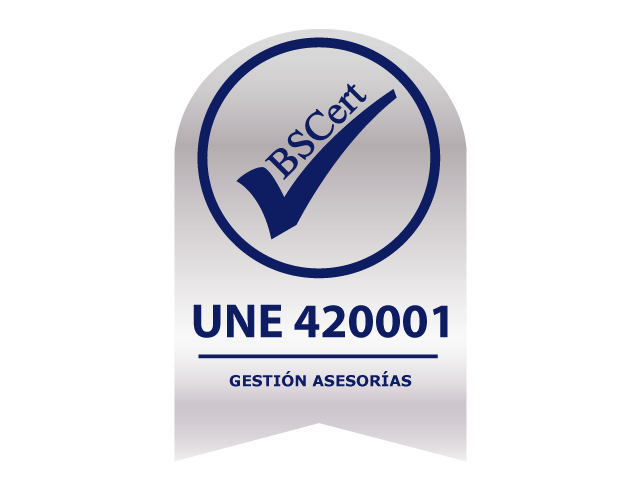Services for foreign citizens
Spanish nationality
If you are interested in Spanish Nationality, ask us for more information.
Procedures to obtain Spanish nationality: residency and the Democratic Memory Law
Spanish nationality can be obtained through different procedures, such as nationality by residence and nationality by the Democratic Memory Law, both of which offer important benefits. In both cases, obtaining Spanish citizenship grants rights such as full access to health and education services, the possibility to vote in national and local elections, and the freedom to reside and work in any EU country.
Obtaining Spanish nationality and its benefit
We manage the process of obtaining your Spanish nationality

Complete management of all necessary procedures

Personalized assistance with a manager dedicated exclusively to your case

Advice to resolve any questions or queries during the process
What is nationality by residence in Spain?
Nationality by residence is a legal procedure that allows you to obtain Spanish citizenship after having resided legally in Spain for a certain period of time.
This process is suitable for those seeking to settle permanently in the country and benefit from all the advantages of Spanish citizenship.
Benefits of and requirements for obtaining Spanish nationality:
Benefits of obtaining Spanish nationality by residence in Spain:
- Participation in elections: Right to vote in national and local elections.
- Health and education services: Complete access to these services.
- Mobility within the EU: Freedom to reside and work in any country of
- Legal security: Greater stability and security in your legal status in Spain.
Requirements to be able to apply for nationality by residence in Spain:
- Continuous residence: Living in Spain for 5 to 10 years, depending on your nationality.
- Exemplary conduct: Maintain behaviour in accordance with Spanish law.
- Knowledge of the language and culture: It is sometimes required to demonstrate fluency in Spanish and cultural knowledge.
Documentation for the application:
General documentation for the application:
- Passport: Complete copy of a valid passport.
- Residence card: Current Foreigner’s Identity Card (TIE) or Foreigner’s Identity Card (CUE).
- Birth certificate: Legalised or apostilled, translated into Spanish by a sworn translator if necessary, issued withing the preceding 3 months.
- Criminal record certificate.
- Payment of fee: Fee 790 code 026.
- Examination certificates: Include the certificate of the DELE A2 and CCSE exams once passed.
- Financial means: Demonstrate sufficient financial means either through a work contract or a bank certificate showing at least 25.920€ (200% of the minimum wage in Spain).
Additional documentation depending on circumstances:
- People born in Spain: Birth certificate of the person concerned issued by the Spanish Civil Registry, issued within the preceding 3 months.
- Not having opted for Spanish nationality on time: Documentation that proves to be in one of the cases of Article 20.1 of the Civil Code, such as the birth certificate of the Spanish father/mother, the birth certificate registered in a Spanish Civil Registry, or a judicial resolution of adoption.
- In guardianship, guardianship or non-provisional foster care:
- Acogimiento familiar: Auto del Tribunal designando a la persona encargada.
- Institutional foster care: Resolution of the institution that assumes the guardianship, guardianship or foster care.
- Refugees and stateless persons: Documentation from the Ministry of the Interior that can replace the birth certificate, criminal record of the country of origin, and passport.
- Married to a Spaniard:
- Birth certificate of the Spanish spouse (issued in the preceding 3 months).
- Marriage certificate (issued within the preceding 3 months).
- Certificate of cohabitation or joint census registration for the last year.
- Copy of the spouse’s national identity document (DNI).
- Widower/widow of a Spanish citizen:
- Birth certificate of the Spanish married partner.
- Marriage certificate (issued within the preceding 3 months).
- Certificate of cohabitation or joint census registration at the date of death of the spouse.
- Death certificate of the spouse.
- Descendant of a Spanish citizen: Birth certificate of the Spanish spouse.
Obtaining Spanish nationality without having to prove residence in Spain
La Ley de nietos, también conocida como Ley de memoria democrática, ha sido formalmente sancionada en el Congreso de los Diputados
Con esta normativa, los descendientes directos de españoles, es decir, hijos y nietos, podrán adquirir la nacionalidad española sin la necesidad de residir en España por un tiempo específico.
¿Quién puede aplicar la ley de nietos?
- Personas nacidas fuera de España de padres o abuelos españoles. Aquellas personas nacidas fuera de España cuyos progenitores o abuelos fueran originalmente españoles y que, debido a haber sufrido exilio por razones políticas, ideológicas, religiosas o por su orientación e identidad sexual, perdieron su nacionalidad o renunciaron voluntariamente a ella.
- Personas españolas que perdieron su nacionalidad al contraer matrimonio con extranjeros. Hijos e hijas nacidos fuera de España de mujeres españolas que perdieron su ciudadanía al casarse con extranjeros antes de que entrara en vigor la Constitución de 1978.
- Sons and daughters of legal age of Spaniards who had their nationality of origin recognised by means of the right to choose, as established in this Law or in the seventh additional provision of Law 52/2007, of 26 December.
Documents required to apply for nationality by the Democratic Memory Law
Documentation to be submitted by the applicant to prove the family relationship:
- Identity card.
- Birth certificate.
- Birth certificate of the antecedent (father, mother, grandfather or grandmother) who was originally Spanish.
- If the application is made by a grandparent, the birth certificate of the father or mother who is connected to the family line of the original Spaniard must also be presented.
In case the application for nationality is linked to a family member who suffered exile, the following additional documentation is required:
- Proof of having received a pension from the Spanish administration.
- Documents from the UN International Refugee Office or from the refugee offices of the host countries.
- Certificates or reports issued by political parties, trade unions or other entities recognised by Spanish authorities or the host country, which are linked to the exile.

